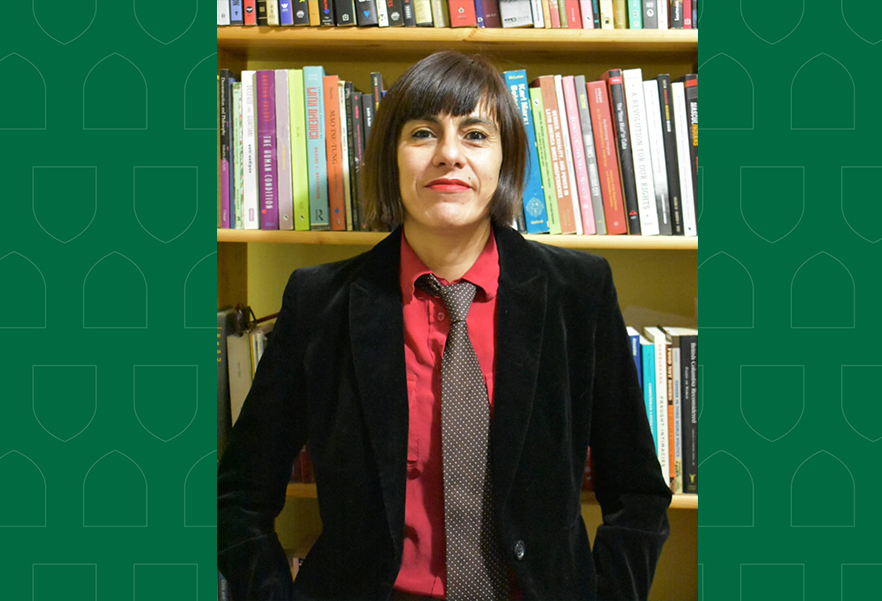
Women in Leadership: Manuela Valle-Castro
As the director of the Division of Social Accountability, Dr. Manuela Valle-Castro (PhD) talks about overcoming gender roles in Chile, and overcoming barriers as a working parent in Canada.
By Erin Prosser-LooseMarch 8 is recognized as International Women’s Day, and the theme for 2021 is “Women in leadership: Achieving an equal future in a COVID-19 world."
Taking our cue on that theme, we are profiling women in leadership at the College of Medicine, selecting from a variety of positions including learners, staff, faculty, and senior administration.
What is your current position and/or leadership role/title.
I am the Director of the Division of Social Accountability at the College of Medicine.
Describe one barrier you experienced, and something that helped you overcome that (or another) barrier, in your journey to leadership?
I grew up in a very oppressive environment for women and girls, under Pinochet's dictatorship in Chile (1973-1990). Gender roles and norms were very rigid and heteronormative, violence and sexual harassment was very much normalized as the "culture" and as a result, I grew up feeling there was something wrong with me as a girl/woman. It was feminism what saved my life and it gave me a framework to understand how the personal is political, and how there is a collective work to do together to change our structural conditions of oppression.
More recently in term of barriers, being a single parent in Canada, where we still do not have universal and accessible childcare was a very real barrier for me to pursue a competitive academic carrier after graduating from UBC. Because I had both my children during my PhD studies, while also working to pay for tuition, I never really had the opportunity to publish and that hurt my opportunities to access tenure jobs. If it was a barrier for me, who still has relative privilege and access to some resources, then imagine how this one barrier has an accumulative impact for every woman trying to parent and work or study in Canada!
How do you think COVID-19 has affected women's progress in your field or the workplace in general?
I think Covid has had mixed impacts for women, depending on their intersectional location. For professional women who can work from home and have not seen their income affected, it may present an opportunity in terms of flexibility to care for others while working at home. For women who depended on serving or retail jobs this is obviously a disaster, the same for women for whom "home" is not a safe place, but rather a space of violence. We know Covid has exacerbated inequities, so women who were already living in precarious conditions, it is just become much worse.
What advice would you have for people (of any gender) in leadership who wish to be allies in advancing women in the workplace?
My advice for people who want to be allies to women, and especially to women with intersectional oppressions —Indigenous women and women of color, queer women, trans women, women with disabilities, undocumented women— is: LISTEN AND LEARN about these communities and discover what are their barriers to participate fully in your workplace/institution/community. Then commit to change those structures and change the culture so that is safe and inclusive for everyone.
